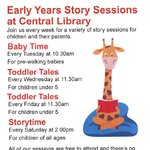Special Educational Needs & Disabilities (SEND)
Our SEND Vision
At St Matthew's, we value all pupils equally and recognise that every child is unique and special. We strive to ensure that all children develop their skills and make good progress throughout their time here. Our diverse and inclusive school is a place where each individual’s achievements are celebrated and children are supported and encouraged to realise their full potential. We aim to be a school where everyone feels fully included, valued, happy and excited about learning.
As a school, we are committed to ensuring all children receive:
- high quality teaching alongside their peers
- access to a broad, balanced and stimulating curriculum
- full inclusion in all aspects of school life
- individualised provision and/or extra adult support when needed in order to meet individual needs
We recognise the importance of not only supporting children’s academic progress, but also developing their emotional wellbeing, social skills and life skills in order to help them to become confident, enthusiastic and increasingly independent learners. We ensure that parents are fully informed of their child's progress at regular points throughout the year, and work alongside the Local Authority, external agencies and health professionals to provide the most effective SEND provision for pupils in our care.
There are 4 catergories of SEND, please see the table below for more information on each category and examples of our support.
For a more detailed support please see the SEND Information Report.
|
Cognition and learning |
Pupils with learning difficulties usually learn at a slower pace than their peers.
Profound and multiple learning difficulties, which is where pupils are likely to have severe and complex learning difficulties as well as a physical disability or sensory impairment |
|
|
Communication and interaction |
Pupils with needs in this area have difficulty communicating with others. They may have difficulty understanding what is being said to them, have trouble expressing themselves, or do not understand or use the social rules of communication.
|
|
|
Social, emotional and mental health |
These needs may reflect a wide range of underlying difficulties or disorders. Pupils may have:
These needs can manifest in many ways, for example as challenging, disruptive or disturbing behaviour, or by the pupil becoming withdrawn or isolated. |
|
|
Sensory and/or physical |
Pupils with these needs have a disability that hinders them from accessing the educational facilities generally provided. Pupils may have:
These pupils may need ongoing additional support and equipment to access all the opportunities available to their peers. |
|
Mrs E Stryker: SENDCo (Special Educational Needs and Disabilities Coordinator)
Mrs Stryker is a Qualified Teacher and holds QTS and the NASENCO Award.
Please call the office on: 01204 333005
1 John 3:18 My children, our love should not be just words and talk; it must be true love, which shows itself in action."
St. Matthew's strives to ensure all pupils receive a curriculum which is best suited to an individual's needs. In September 2025, we will open 'Treetops', to enable some of our pupils to access learning within a safe, happy and regulating learning environment. The learning which takes place within Treetops focuses on the academic and life skills curriculum.
By creating this learning environment, we can offer specialised resources and targeted interventions that are essential for addressing children's individual learning needs. This approach not only fosters an inclusive atmosphere but also enables us to closely monitor their progress and adapt our strategies as needed, ultimately promoting their social, emotional, and academic growth.
The children have access to a specialised learning environment specifically designed to meet the needs of students whose individual needs impact considerably on their communication and learning needs.
Curriculum
In Treetops, the children have a range of different needs and have unique ways of learning. Different learning needs require different teaching approaches, which often change over time. We work closely with external agencies such as Woodbridge SEND outreach, Speech and Language, Educational Psychology and Greenfold Outreach to provide a bespoke experience for our children reflective of their needs.
We adopt a blended approach of an informal, semi-formal and formal curriculum, which progressively prepares children to access the National Curriculum to ensure that: “All children and young people are entitled to an education that enables them to make progress so that they: achieve their best and become confident individuals living fulfilling lives.” (SEND Code of Practice).
Structured learning provides stability, predictability, and security. For children who access Treetops, these are crucial elements to ensuring that our children are ready and able to learn. The way in which a child’s day is structured and organised depends on their individual needs and we provide a blended curriculum approach to ensure that children engage with learning at their bespoke level, and access their year group curriculum and social times, where appropriate.
Please click here to access the SEND Code of Practice.
Please click here to access the Bolton Local Offer.
Bolton Information and Advisory Service SEND is a service that can support parents and carers. Please click here to find out more.




.png)
